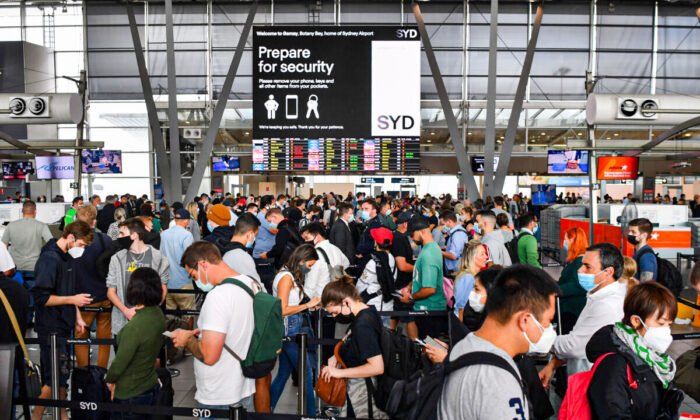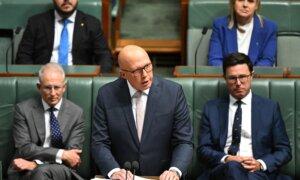Analysis: Politicians Increase Efforts to Reduce Migration
Sydney Councillor Steve Christou expressed that Peter Dutton’s proposal to reduce migration levels below that of Labor is insufficient.
Analysis
A bidding war among politicians is taking place across the nation, but it’s not the highest bidder who appears likely to win public approval.
With a pressing shortage of housing, high grocery prices, and increasing bills, the Australian political landscape is buzzing with discussions on migration. It seems that Australia has welcomed more new residents than it can effectively accommodate.
Cumberland City Councillor Steve Christou is among the politicians advocating for progressively lower numbers of migrants entering the country.
Treasurer Jim Chalmers announced on May 14 that Labor plans to reduce migration, following a record intake of 528,000 migrants from 2022-23. This number is expected to decrease to 395,000 in 2023-24 and then to 260,000 in 2024-25.
According to Labor’s plan, migration will be restricted to 185,000 individuals annually, with priority given to skilled workers.
In his budget reply speech on May 16, Opposition Leader Peter Dutton proposed an even lower annual intake of migrants at 140,000.
Mr. Dutton addressed Parliament stating, “Under this prime minister, the great Australian dream of home ownership has turned into a nightmare. Even finding somewhere to rent is near impossible.”

Mr. Christou is of the opinion that the Coalition’s reduction of migration by 25% does not address the cost-of-living crisis faced by many individuals struggling with expenses such as mortgages, rent, bills, and food expenses for their families.
He stated on social media platform X, “Housing and job shortages are real. A temporary pause on migration is necessary until Australia’s infrastructure can catch up with current demands.”
Australia’s migrant population of 7.6 million has been steadily increasing. ABS data indicates a growth of over half a million new residents from 2022-23, with migrant levels rising by 73% after the pandemic.
Meanwhile, migrant departures have only decreased by 2%.
ABS data also reveals a continuous yearly increase in rent inflation, reaching over 6% in 2022 after starting in 2021.
Rental vacancy rates have been declining since 2021.
Previously, Labor advocated for a “Big Australia,” projecting 1.5 million new migrants over five years while committing to only 30,000 new homes. This initiative was criticized by Liberal Shadow Immigration Minister Dan Tehan, who accused the government of lacking a plan for where migrants would reside or how it would impact government services.
The strategy is focused on the financial benefits that come with bringing more people into the country, aiming to tap into a global consumer base and establish a tax base of over 100 million individuals to prevent potential foreign threats.
The decline in Australia’s fertility rate poses a challenge for the government, as the average Australian is expected to have only 1.6 children in the future.
This presents a dilemma for the government – to expand rapidly and assert global influence while citizens struggle with everyday expenses, or to take a careful approach with measures ensuring fewer individuals are left disadvantaged.
Labor claims to have struck the right balance in this regard.

“I want Australians to know that despite everything coming at us, we are among the best placed economies to manage these uncertainties and maximise our opportunities,” Mr. Chalmers stated on Budget night.
“We have an envied combination of moderating inflation, record new jobs, near‑record participation, real wages growth, the lowest‑ever gender pay gap, and expanding business investment.”
Only time, and voters, will tell.





